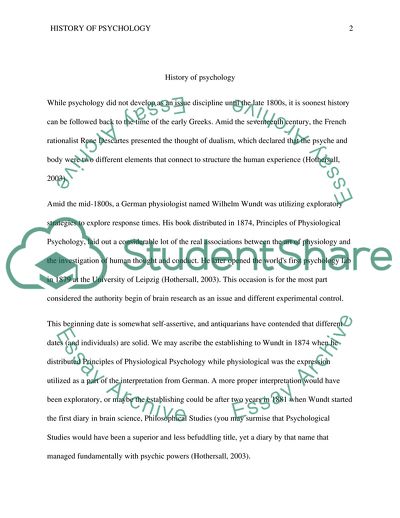Cite this document
(History of the Beginning of Psychology Term Paper Example | Topics and Well Written Essays - 2750 words, n.d.)
History of the Beginning of Psychology Term Paper Example | Topics and Well Written Essays - 2750 words. https://studentshare.org/psychology/1852807-history-of-the-beginning-of-psychology-with-wundt-as-the-founder
History of the Beginning of Psychology Term Paper Example | Topics and Well Written Essays - 2750 words. https://studentshare.org/psychology/1852807-history-of-the-beginning-of-psychology-with-wundt-as-the-founder
(History of the Beginning of Psychology Term Paper Example | Topics and Well Written Essays - 2750 Words)
History of the Beginning of Psychology Term Paper Example | Topics and Well Written Essays - 2750 Words. https://studentshare.org/psychology/1852807-history-of-the-beginning-of-psychology-with-wundt-as-the-founder.
History of the Beginning of Psychology Term Paper Example | Topics and Well Written Essays - 2750 Words. https://studentshare.org/psychology/1852807-history-of-the-beginning-of-psychology-with-wundt-as-the-founder.
“History of the Beginning of Psychology Term Paper Example | Topics and Well Written Essays - 2750 Words”. https://studentshare.org/psychology/1852807-history-of-the-beginning-of-psychology-with-wundt-as-the-founder.


